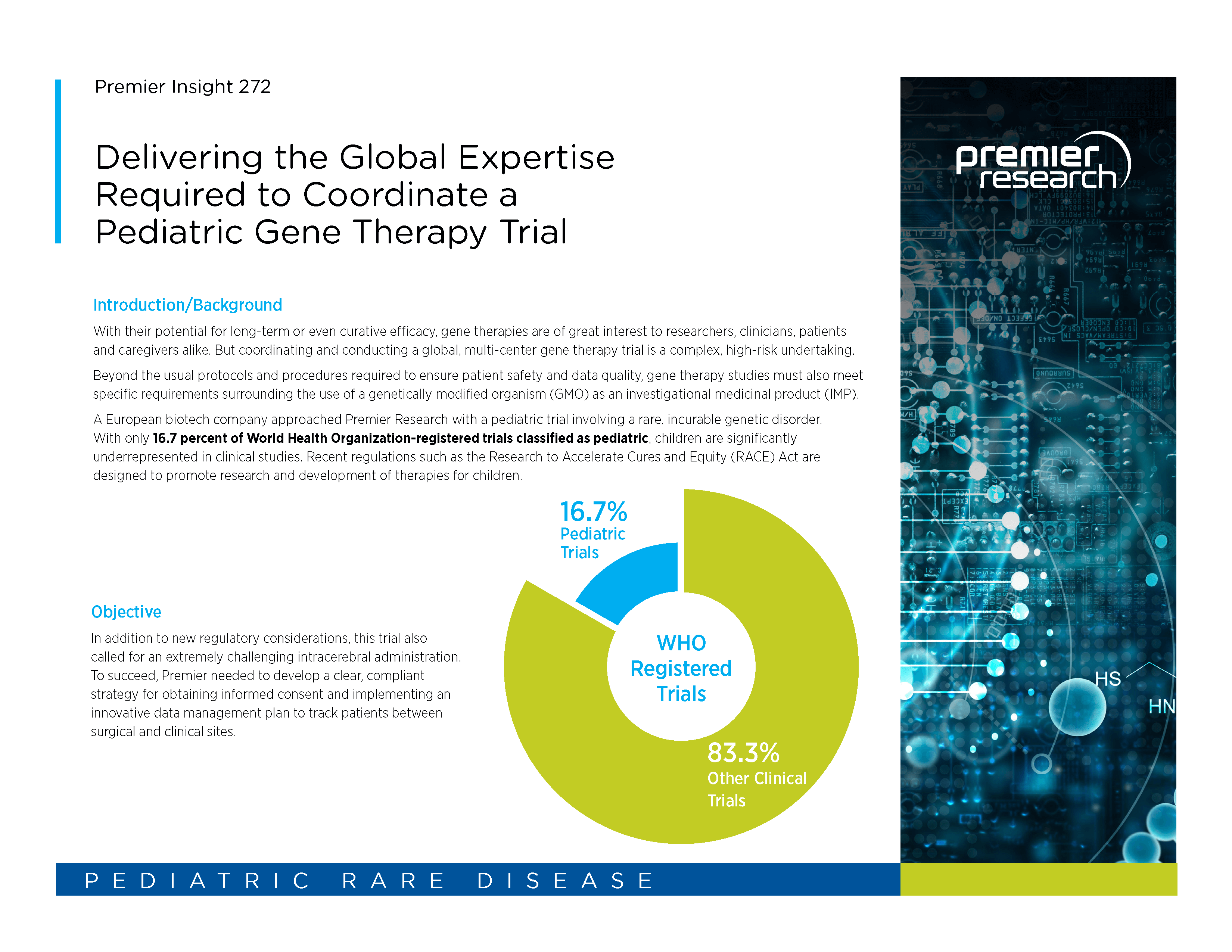Background
With their potential for long-term or even curative efficacy, gene therapies are of great interest to researchers, clinicians, patients and caregivers alike. But coordinating and conducting a global, multi-center gene therapy trial is a complex, high-risk undertaking.
Beyond the usual protocols and procedures required to ensure patient safety and data quality, gene therapy studies must also meet specific requirements surrounding the use of a genetically modified organism (GMO) as an investigational medicinal product (IMP).
A European biotech company approached Premier Research with a pediatric trial involving a rare, incurable genetic disorder. With only 16.7 percent of World Health Organization-registered trials classified as pediatric, children are significantly underrepresented in clinical studies. Recent regulations such as the Research to Accelerate Cures and Equity (RACE) Act are designed to promote research and development of therapies for children.
Objective
In addition to new regulatory considerations, this trial also called for an extremely challenging intracerebral administration. To succeed, Premier needed to develop a clear, compliant strategy for obtaining informed consent and implementing an innovative data management plan to track patients between surgical and clinical sites.
Meeting the Challenge: Executing a pediatric gene therapy trial
Challenge #1: Enhancing the participant experience
Along with great interest in the study came questions from families about the enrollment process and the scope of the study requirements (both during surgery and the extensive follow-up process).
Our Strategy:
Knowing that a positive experience for patients and their families is critical to the success of a study of this complexity, we developed materials to support family discussions, including an informed consent flip chart. We also managed high-touch travel support to facilitate participation and initiated a bi-annual newsletter to foster long-term engagement.

